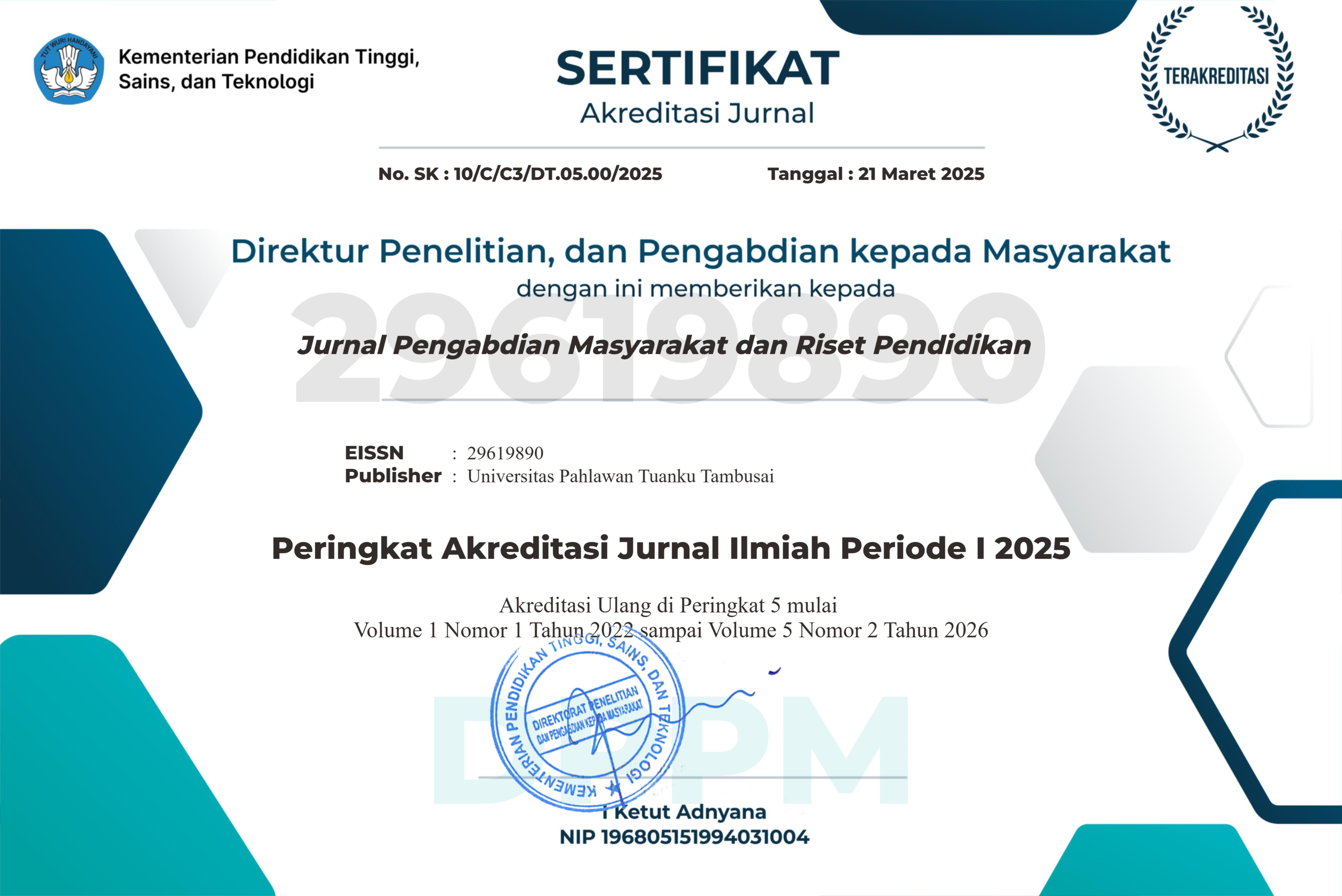Optimizing Character Formation: Community Service to Improve Student Discipline at the Elementary School Level
DOI:
https://doi.org/10.31004/jerkin.v2i3.239Keywords:
Character Formation, Community Service, Elementary School LevelAbstract
This community activity attempts to enhance student discipline at the primary school level through a holistic strategy that engages kids, teachers, parents and the surrounding community. Starting with a successful opening seminar which introduced the concept of discipline as the main foundation in forming student character, this program continued with an interactive workshop which provided in-depth understanding and special training for teachers in integrating discipline habits into everyday learning. Involving parents and community people through discussion forums, this program enables successful collaboration between the school environment and the local community. Program evaluations reveal better understanding and good changes in student conduct. The closing seminar as the final event of the program provides an opportunity to present concrete outcomes, successful experiences and future visions. This community activity not only meets the goal of enhancing student discipline, but also fosters a communal commitment to maintain the culture of discipline that has been successfully developed. The outcomes not only have an influence at the school level, but also provide a successful model that may be replicated by other educational institutions in an effort to improve student discipline and the overall quality of basic education
References
Amhag, L. (2019). Teacher Educators’ Use of Digital Tools and Needs for Digital Competence in Higher Education. Journal of Digital Learning in Teacher Education, 35(4), 203–220. https://doi.org/10.1080/21532974.2019.1646169
Norman, E., & Furnes, B. (2016). The relationship between metacognitive experiences and learning: Is there a difference between digital and non-digital study media? Computers in Human Behavior, 54, 301–309. https://doi.org/10.1016/j.chb.2015.07.043
Prayuda, M. S., Ginting, Y. A., Afrilia, D., & Dharma, W. (2023). THE The Effect of Extensive Reading Strategy on Students’ Reading Comprehension at Smp Dharma Wanita In The Academic Year Of 2023/2024. Journal of English Language Learning, 7(2), 421–431. https://www.ejournal.unma.ac.id/index.php/jell/article/view/6581
Prayuda, M. S., Juliana, J., Ambarwati, N. F., Ginting, F. Y. A., & Gultom, C. R. (2023). Students’ Writing Error in Parts of Speech: A Case Study of EFL Students. Jurnal Educatio FKIP UNMA, 9(2), 659–665. https://doi.org/10.31949/EDUCATIO.V9I2.4419
Shaping Digital Education. (2023). Shaping Digital Education. https://doi.org/10.1787/BAC4DC9F-EN
Syahid, A. A., Hernawan, A. H., & Dewi, L. (2022). Analisis Kompetensi Digital Guru Sekolah Dasar. Jurnal Basicedu. https://jbasic.org/index.php/basicedu/article/view/2909
Downloads
Published
How to Cite
Issue
Section
License
Copyright (c) 2024 Nurhayida Silalahi, Ester Julinda Simarmata, Rosdiana Samosir

This work is licensed under a Creative Commons Attribution-ShareAlike 4.0 International License.















